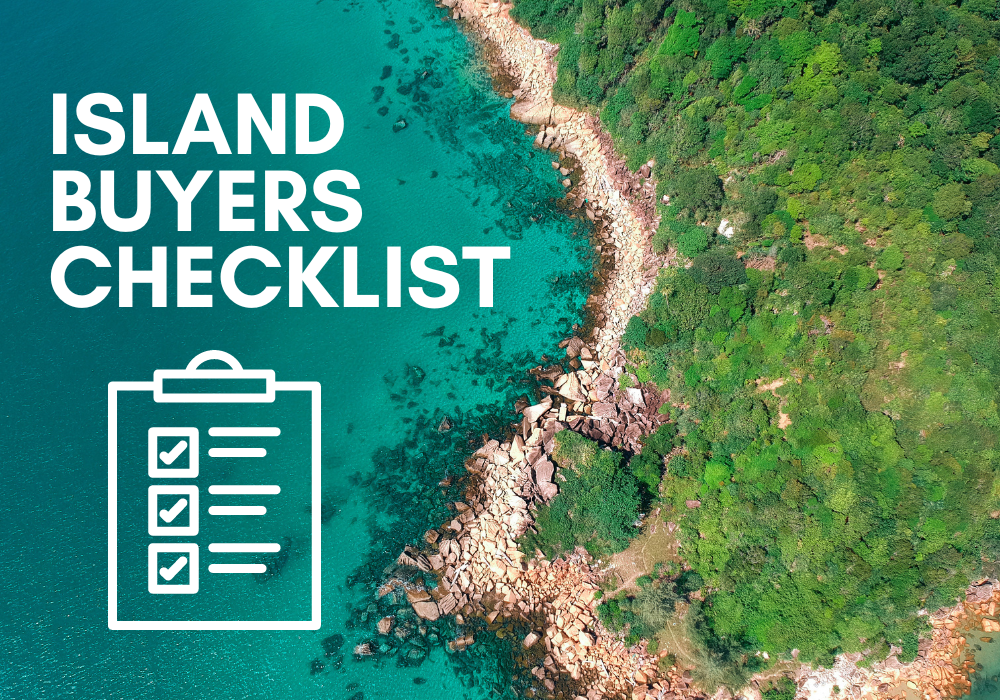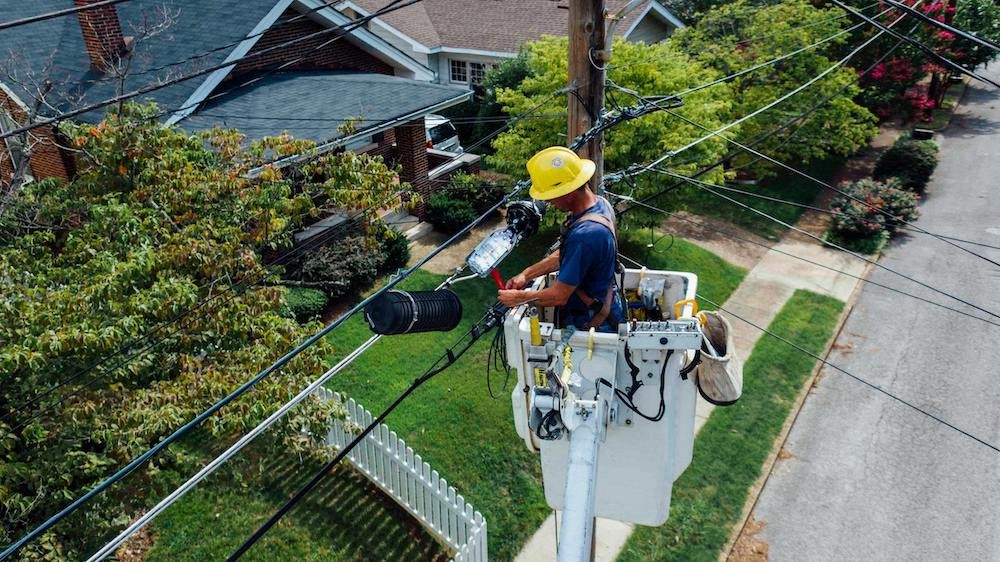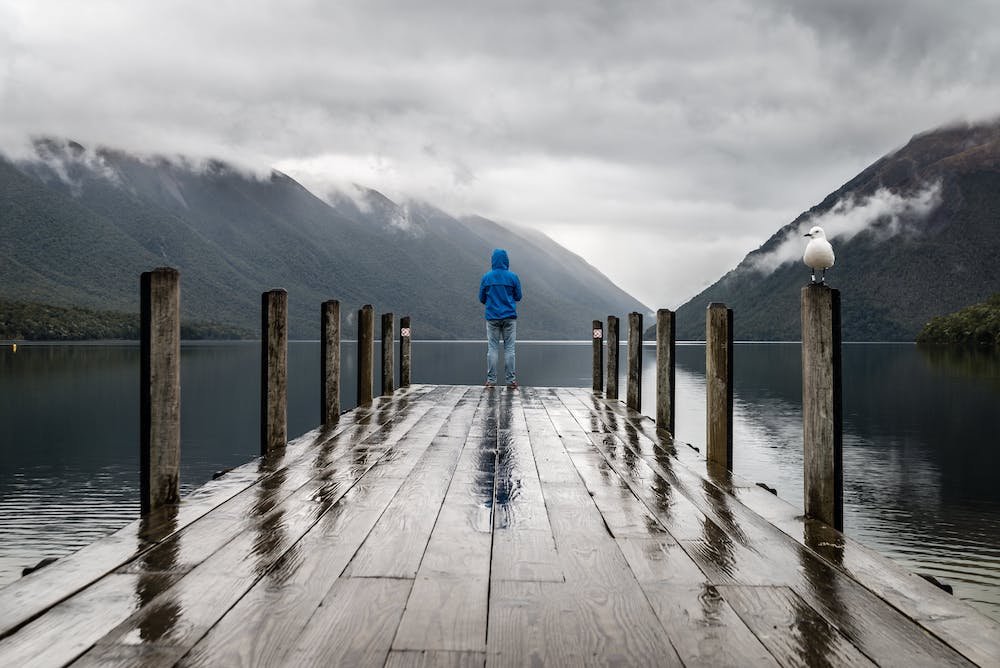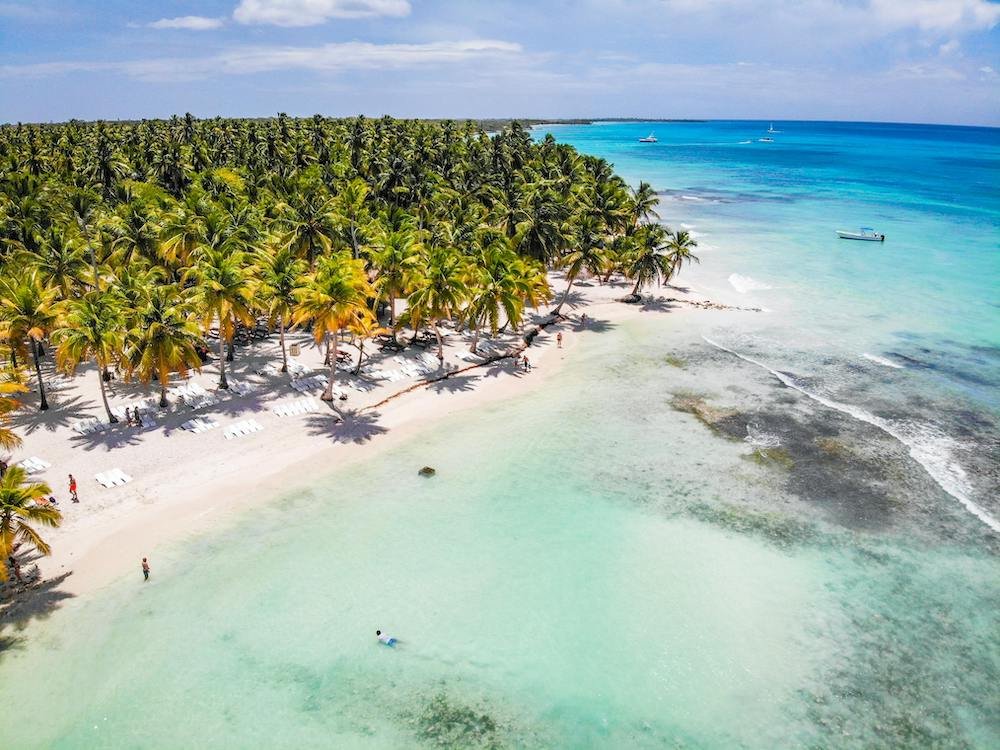
When it comes to island buyers wanting to purchase a private island, thorough due diligence is paramount to ensure a wise investment.
To uphold a quality standard, we have devised a comprehensive checklist comprising 12 important criteria that must be met when you are considering to purchase a private island.
1. Unencumbered Freehold Title

Insist on Unencumbered Freehold Title
One of the non-negotiable criteria for discerning island buyers is the insistence on an unencumbered freehold title for the entire island.
This pivotal aspect ensures unequivocal ownership, granting you complete control over the property.
The significance of this requirement cannot be overstated, as it forms the bedrock of a secure and valuable island investment.
Distinguishing Freehold from Leasehold
Understanding the distinction between freehold and leasehold is imperative for prospective island owners.
Freehold signifies absolute ownership, providing the holder with rights to the land and any developments on it.
Conversely, leasehold implies limited rights, as the property is essentially rented for a specified duration.
It’s crucial to recognize the implications of each tenure type, as it directly influences the island’s long-term value.
Solicitor Engagement for Title Verification
To ensure the integrity of the title, engaging a solicitor with expertise in the region where the island is located is paramount.
The solicitor plays a crucial role in verifying the title’s tenure, checking for any encumbrances or legal complications.
Additionally, it is advised to confirm that the freehold title is duly recorded in a public registry, providing an additional layer of transparency and legal assurance.
Thorough Tax Assessment with a Chartered Accountant
A comprehensive understanding of the tax landscape is essential for island buyers.
Before finalizing the purchase, a chartered accountant residing in the host country should be consulted to assess various tax implications.
This includes examining potential taxes such as Deed Transfer Tax, Stamp Duty, Wealth Tax, Inheritance Tax, Gift Tax, and income tax for potential resale.
A meticulous tax assessment ensures that buyers are well-informed about the financial commitments associated with their island acquisition.
2. Medical: Proximity to Medical Services

Proximity Matters: Medical Services Within a 90-Minute Radius
When considering the purchase of an island, the proximity to medical services emerges as a critical factor.
We strongly advocate for islands that offer access to medical facilities within a 90-minute radius.
This timeframe is not arbitrary; it ensures that in case of emergencies, prompt medical attention is within reach.
The accessibility of healthcare services is a non-negotiable aspect of island living that directly contributes to the safety and well-being of residents.
Underscoring Importance: Real-Life Incidents
Real-life incidents have time and again emphasized the paramount importance of having medical services in close proximity to the island.
Whether it’s a sudden health crisis, an unforeseen accident, or even a natural disaster, the ability to swiftly transport individuals to a hospital within the critical golden hour can make a life-saving difference.
By learning from past incidents, island buyers gain a profound understanding of why prioritizing medical accessibility is not just a recommendation but a necessity.
Impact on Property Value: A Pragmatic Consideration
Beyond the immediate health benefits, the accessibility of medical services significantly impacts the property value of an island.
Islands with readily available medical facilities are not only more attractive to potential buyers but also hold their value better over time.
Conversely, islands lacking proximity to medical services may face diminished demand in the real estate market.
The future resale potential of such islands may be compromised as buyers prioritize safety and well-being when making their investment decisions.
3. Fauna: Living with Indigenous Animals

Acknowledging Biodiversity: Presence of Indigenous Animals and Insects
Islands, by their very nature, are home to diverse ecosystems, often featuring unique and indigenous flora and fauna.
Recognizing and acknowledging the presence of indigenous animals and insects is integral to understanding and appreciating the island’s ecological balance.
Buyers are encouraged to embrace this biodiversity as an essential aspect of island living.
Cautionary Notes: Health Risks and Potential Inconveniences
While the indigenous fauna contributes to the natural beauty of the island, it’s crucial to be aware of potential health risks and inconveniences associated with certain species.
Some islands may be home to mosquitoes, sand-flies, or other insects that, while a natural part of the ecosystem, can pose challenges.
Buyers should exercise caution and be informed about the specific fauna on the island, taking necessary measures to mitigate any associated health risks.
Personal Assessment: Connecting with the Island’s Ecosystem
Beyond caution, we strongly encourage prospective buyers to personally assess the island’s ecosystem.
Visiting the island and experiencing its natural environment firsthand provides valuable insights into the day-to-day coexistence with indigenous animals.
This personal connection allows buyers to make informed decisions about their ability to adapt to and appreciate the unique island habitat.
4. Flora: Understanding Trees and Plants

Promoting a Careful Study: Unveiling the Island’s Flora
The flora of an island is not merely a backdrop but an integral part of its identity.
We advocate for prospective buyers to engage in a meticulous and careful study of the island’s flora.
By understanding the various trees and plants that inhabit the landscape, buyers can develop a profound appreciation for the natural beauty that surrounds them.
Highlighting Potential Dangers: Awareness of Risks
While the lush vegetation contributes to the allure of the island, it’s essential to be aware of potential dangers associated with certain flora.
From poisonous plants to the hazard of falling coconuts, buyers should approach the study of flora with a keen eye for safety.
This awareness ensures that the beauty of the island is enjoyed without compromising the well-being of its residents.
Expert Assessment for Sustainability: Involving Island-Savvy Professionals
To delve deeper into the island’s sustainability, it’s advisable to involve experts who can assess groundwater availability and the overall self-sufficiency of the island.
Island-savvy professionals, such as botanists or environmental scientists, can provide valuable insights into the health of the ecosystem.
Understanding the island’s ability to sustain itself ensures a more informed decision-making process for prospective buyers.
5. Host Country: Legal and Social Considerations

Legal Systems for Foreign Investments: A Primer
Understanding the legal landscape of the host country is crucial for any island buyer.
Foreign investments often encounter one of three legal systems:
- Free Market: In countries like the United States, Canada, Germany, France, and Great Britain, foreign investments face minimal restrictions. Buyers can freely sell and buy without significant limitations.
- Restricted Market: Some countries permit foreign ownership but with government sanctions. These governments often scrutinize the buyer’s character and intentions. Notably, the creation of jobs may influence the approval process. It’s imperative to approach the application process with utmost transparency and honesty.
- Foreigners Not Allowed to Purchase: In certain countries like the Philippines, Indonesia, Malaysia, and some Pacific Ocean nations, foreigners are barred from acquiring freehold islands/land. Attempting to circumvent these laws through companies or trust bodies is not recommended, as it may lead to legal complications.
Differentiating Market Types: Free, Restricted, and Prohibited
Buyers should be aware of the market type in the host country:
- Free Market: Offers a broad spectrum for buying and selling, ensuring flexibility and potentially robust resale options.
- Restricted Market: May require government permits but can be divided into two subcategories. In some countries like Switzerland, New Zealand, and Australia, a local market exists, providing a potential safety net for resale. In others like Tahiti, Grenada, and Seychelles, the absence of a permit may limit selling options to the local market, potentially impacting buying power.
- Foreigners Not Allowed: In countries where foreigners are outright prohibited from purchasing, patience becomes a virtue. Renting an island for holidays allows potential buyers to gauge local sentiments and await potential changes in government policy.
Gauging Local Sentiments: Island Rental as a Prelude
Renting an island in the desired location is a prudent step in gauging local sentiments toward foreign investments.
This firsthand experience provides valuable insights into how the community perceives outsiders.
While unfriendly situations are rare, renting allows potential buyers to assess the level of acceptance and integration possible, ensuring a seamless transition into the local social fabric.
6. Access: Island Accessibility

Year-Round Accessibility: Nature’s Role in Island Connectivity
Evaluating the year-round accessibility of an island is paramount for a seamless island living experience.
Natural features such as safe harbors, anchorage points, and landing options play a crucial role.
Buyers should ensure that these elements are conducive to reliable access regardless of the season and weather conditions.
Islands with consistent accessibility contribute to a more practical and enjoyable ownership experience.
Mainland Property for Logistical Support: A Strategic Advantage
In addition to island accessibility, the presence of a mainland property can offer logistical support that enhances overall convenience.
A mainland property provides a secure location for parking a car, mooring a boat, and even building a garage for storage purposes.
This strategic setup facilitates smoother logistics for island living, especially in terms of transportation and storage needs.
The mainland property’s proximity to the island ensures a connected and efficient lifestyle.
Safe Harbors and Airstrips: A Boon for Connectivity
For islands in regions where natural anchorage may be challenging, the availability of safe harbors or the potential for building an airstrip becomes crucial.
Safe harbors offer protection for moored boats, ensuring their safety during adverse weather conditions.
Airstrips, while requiring maintenance, provide a swift means of transportation to and from the island.
These features, if feasible, significantly contribute to the island’s overall accessibility and connectivity.
7. Infrastructure: Essential Services

Significance of Essential Services: Fresh Water, Legal Sewage, and Electricity
Infrastructure is the backbone of comfortable island living, and essential services are at its core.
Fresh water, a legal sewage system, and electricity are non-negotiable components.
Fresh water availability ensures the sustainability of the island, legal sewage systems contribute to environmental responsibility, and electricity is indispensable for modern living.
The seamless integration of these services defines the level of comfort an island can provide.
The Vital Role of a Drilled Well: Northern and Southern Hemisphere Dynamics
In the northern and southern hemispheres, the availability of a drilled well is a game-changer.
These wells offer a reliable and independent water source, often making islands in these regions more self-sufficient.
A drilled well provides a consistent supply of fresh water, a vital consideration for buyers seeking sustainability and reduced reliance on external resources.
Changing Landscape of Services: Electricity, Telephone, and Internet
The landscape of essential services on islands is evolving.
While underwater cables from the mainland to the island provide a reliable source of electricity, the advent of alternative energy methods is also transforming how power is generated.
Telephone lines have given way to the prevalence of cellular networks, and the internet has become an integral part of island connectivity.
Staying abreast of these changes ensures that island buyers are well-equipped to adapt to evolving service infrastructures.
8. Building Permit: Legal Considerations

Developed vs. Undeveloped Islands: The Building Permit Dichotomy
Understanding the legal landscape of building permits is crucial, and it varies significantly between developed and undeveloped islands.
Developed islands with existing homes require scrutiny to ensure these structures were built legally, and their building permits are accessible for review.
On the other hand, undeveloped islands present a more complex challenge.
Prospective buyers must ascertain whether a building permit is available at all, considering the increasing influence of environmental laws.
Importance of Professional Due Diligence: Building with Certainty
For both developed and undeveloped islands, hiring professionals is paramount for due diligence.
Architects, surveyors, and legal experts play a crucial role in verifying the legality of existing structures, understanding the conditions of building permits, and navigating through environmental regulations.
Their expertise provides buyers with the assurance that their island investment aligns with legal requirements.
Contractual Safeguards: Due Diligence Period for Building Permits
To mitigate risks associated with building permits, it’s recommended to enter into a contract with a due diligence period.
This contractual arrangement allows buyers a specified timeframe—usually 90 days—to conduct a thorough investigation into the availability of building permits.
If building permits are confirmed within this period, the transaction proceeds; if not, buyers can back out with their deposit returned, declaring the agreement null and void.
This safeguard ensures that buyers have the necessary legal clearances before committing to the purchase.
9. Climate: Weather Conditions

Checking Weather Statistics: An Essential Step
Before making a final decision on an island purchase, it’s crucial for buyers to delve into weather statistics specific to the chosen location.
Numerous online platforms, such as www.weather.com, offer comprehensive data, including wind patterns, hours of sunshine throughout the year, and humidity levels.
Understanding the climate of the island helps buyers make informed decisions about its suitability for their preferences and lifestyle.
Climate’s Role in Property Value: A Significant Factor
Climate conditions not only influence personal comfort but also play a pivotal role in determining property value.
Islands with moderate climates often experience the most robust growth in value.
The appeal of an island as a desirable retreat is inherently tied to its climate, making it a key factor in the overall investment potential.
Buyers looking for sustainable and appreciating investments should carefully consider the climate conditions of their chosen island.
Impact of Severe Weather Conditions: A Cautionary Note
In an era of increasingly severe weather conditions, it’s essential to consider the potential impact on an island’s growth potential.
Tornadoes, hurricanes, tsunamis, and other extreme weather events can significantly affect both the desirability and safety of an island property.
Conducting due diligence on the historical weather patterns and the island’s resilience to severe conditions ensures that buyers are well-prepared for any challenges that may arise.
10. Island Surroundings: Community and Crime Level

Integration into the Local Community: A Key to Island Living
Contrary to the solitary image often associated with island life, owners are an integral part of the local community.
Daily life involves interactions with neighbors, trips to the mainland for essentials, and engagement with various amenities and services.
Prospective buyers should envision and embrace this communal aspect of island living, as it contributes to a more enriching and satisfying experience.
Safety Concerns: Renting Before Buying
Safety is a paramount consideration, and while incidents are rare on islands, precautions are essential.
One effective way to gauge safety and community dynamics is to rent an island before making a purchase.
Renting provides firsthand experience, allowing potential buyers to assess the neighborhood, interact with locals, and determine if the community aligns with their expectations.
This trial period is invaluable for making an informed decision about long-term ownership.
Addressing Crime Concerns: A Cautionary Note
Islands are generally safe havens, but it’s wise to acknowledge that crime incidents, albeit infrequent, can occur.
Regions with prevalent drug trafficking may warrant extra caution.
Island owners can mitigate risks by not displaying expensive items and adopting prudent security measures.
However, such incidents are exceptions rather than the rule.
A comprehensive understanding of the crime level in the chosen area, gained through interaction with neighbors and locals, is essential for a secure and enjoyable island living experience.
11. Island Value (Investment): Understanding the Market

Two Aspects of the Island Market: Local vs. Foreign-Driven
Understanding the island market is pivotal for buyers aiming for a secure investment.
There are two primary aspects to consider: locally driven and foreign driven markets.
In locally driven markets, where local buyers predominantly influence demand, it’s crucial to recognize that reselling to an international market may pose challenges.
Conversely, foreign-driven markets, where international buyers hold sway, come with their own set of considerations, including potential legal restrictions and fluctuations in demand.
Gauging Demand in the Immediate Neighborhood: A Smart Move
To ensure a reliable investment, buyers should delve into the demand and market dynamics in the immediate neighborhood.
Observing how well islands are accepted and developed in the nearby area provides valuable insights.
Areas with a high demand for island properties typically indicate stability and growth potential.
Conversely, islands left untouched for extended periods may signal underlying reasons, prompting a cautious approach.
Stability in an Open Market: Foundation for a Reliable Investment
The stability of an open market is the bedrock of a reliable investment.
In regions where both locals and foreigners freely engage in island purchases, the risk of drastic legal changes is minimized.
Over the past few decades, such markets have demonstrated consistency, making them a favorable environment for secure investments.
Buyers should prioritize stability, assessing the market’s openness to both locals and foreigners as a fundamental factor in their decision-making.
12. Island Seller: Dealing with Owners, Agents, or Third Parties

Dealing Directly with an Owner: A Guide to Due Diligence
When considering direct transactions with island owners, thorough due diligence is paramount.
Buyers should engage independent legal advisors to scrutinize the deal, ensuring that all aspects align with legal and financial standards.
This process includes verifying property titles, examining encumbrances, and confirming that the transaction is accurately represented.
Working closely with a solicitor safeguards buyers from potential pitfalls and ensures a transparent and secure transaction.
The Role of Licensed Agents: Representation and Obligations
Engaging licensed agents is a prudent approach in island transactions.
Agents with a valid real estate license possess a level of professional accountability.
Buyers can expect agents to uphold ethical standards and accurately represent the specifications of the island.
This representation extends beyond flashy online presentations to include comprehensive and accurate details in official offering memoranda.
Choosing licensed agents ensures transparency and adherence to industry standards.
Checking Agent Registration: A Crucial Step
Buyers should verify the registration status of agents through reputable channels like international real estate associations and local embassies.
Licensed organizations such as Isle Keys provide a secure way of buying private islands anywhere in the world.
This step ensures that buyers are dealing with legitimate and recognized professionals, minimizing the risk of fraudulent transactions.
Conclusion
Purchasing an island is a nuanced process that demands careful consideration of numerous factors.
This comprehensive checklist serves as a guide, ensuring that buyers make informed decisions and invest in islands that meet high-quality standards.
If you have further questions, our experienced team is ready to assist you on your journey.

FAQ’s About Private Island Buyers Checklist
What to know before buying an island?
Legal Title: Verify clear ownership through legal professionals, ensuring undisputed title and conducting due diligence on encumbrances.
Medical Accessibility: Prioritize proximity to medical services within a 90-minute radius for emergencies, considering its impact on property value.
Fauna and Flora: Acknowledge indigenous species, assess potential health risks, and evaluate the island’s ecosystem personally.
Infrastructure: Ensure access to essential services like fresh water, legal sewage systems, electricity, telephone, and internet, considering the availability of a drilled well.
Legal Considerations: Understand the host country’s legal systems for foreign investments, differentiating between free, restricted, and prohibited markets.
Island Accessibility: Evaluate year-round accessibility, considering natural anchorage, landing options, and potential benefits of a mainland property.
Building Permit: Ensure legal compliance by differentiating between developed and undeveloped islands and advocating for due diligence and professional guidance.
Climate: Consider weather statistics, including wind, sunshine hours, and humidity, understanding their impact on property value.
Island Surroundings: Embrace community integration, recognizing the owner’s role and assessing safety concerns by renting before buying.
Island Value (Investment): Understand the two aspects of the island market, locally and foreign-driven, gauging demand and market dynamics.
Island Seller: Navigate transactions with confidence by conducting due diligence, recognizing the importance of licensed agents, and verifying their registration status.
What Is a Freehold Island?
Definition: A freehold island implies complete ownership of the property and land without any encumbrances. The owner has unrestricted rights to use, sell, or lease the island.
Advantages:
- Ownership Control: Full control over the property’s use and development.
- Investment Potential: Generally, freehold properties have better resale value.
Disadvantages:
- Higher Cost: Freehold islands typically come at a higher initial cost.
- Legal Responsibilities: Owners are solely responsible for legal compliance and maintenance.
What Is a Leasehold Island?
Definition: A leasehold island involves ownership rights for a specific period, after which the property reverts to the lessor. The owner has limited control compared to freehold.
Advantages:
- Lower Initial Cost: Leasehold islands often have a lower upfront cost.
- Reduced Legal Responsibilities: Some legal responsibilities may rest with the lessor.
Disadvantages:
- Limited Control: Restrictions on property use and development.
- Value Depreciation: The property’s value may decrease as the lease term progresses.
What Is a Disadvantage of Living on an Island?
Isolation and Limited Resources:
- Living on an island may result in limited access to resources, goods, and services.
- Isolation can pose challenges in emergencies or medical situations, emphasizing the importance of proximity to essential services.





